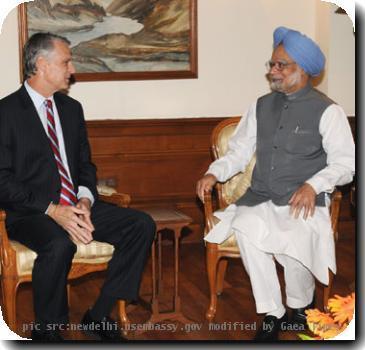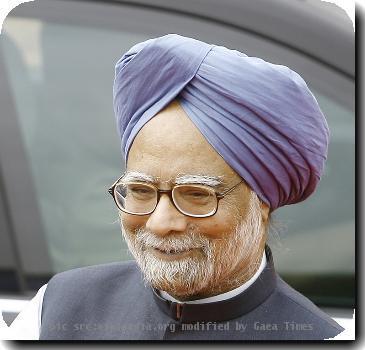UN climate summit opens amid warning and hope (Second Lead)
By Joydeep Gupta, IANSMonday, December 7, 2009
COPENHAGEN - The UN climate summit, on whose decisions the future of the planet Earth and the well-being of succeeding generations depends in many ways, opened in the Danish capital Monday with a call by a leading expert that there will be hundreds of millions of climate refugees unless the 192 nations get over their differences and act urgently.
Intergovernmental Panel on Climate Change (IPCC) chief Rajendra Pachauri said the time for debate was over and the Dec 7-18 conference must “lead to action”.
Over 15,000 government delegates, NGOs and media gathered at the Bella Centre in the Danish capital for a crucial two-week meet to deal with what has been called “the defining crisis of our age” by UN chief Ban Ki-moon. However, a treaty that can tackle the climate change that is already affecting the world is as far as ever.
Industrialised and major developing countries have submitted to the UN Framework Convention on Climate Change (UNFCCC) draft treaties that are almost at two ends of the spectrum on the crucial issue - who should reduce emissions of greenhouse gases (GHG), by when and by how much.
The so-called BASIC grouping of countries - Brazil, India, South Africa and China - has proposed what essentially amounts to industrialised countries cutting their GHG emissions 40-45 percent by 2020. Without any mention of this, the proposal by host Denmark - echoed by many developed countries - is that emerging economies commit to a date by which their GHG emissions will peak.
The so-called “peaking year” approach is “completely unacceptable” to India, a member of the government delegation said immediately after the inauguration ceremony of the summit of 192 nations. A stage for confrontation and hard bargaining has been set.
At the ceremony, Pachauri - also head of New Delhi-based The Energy and Resources Institute (TERI) - reminded delegates that according to science, “global GHG emissions must peak by 2015 and then decline if temperature rise is to be kept within two degrees Celsius as endorsed by the G8 leaders” a few months back. That move was endorsed by the G20, including India.
The time for debate is over, Pachauri warned. “This conference must lead to action.”
The IPCC chief said: “In the 20th century average global temperature increased by 0.74 degrees Celsius while sea level rise resulting from thermal expansion of the ocean and melting of ice across the globe amounted to 17 cm.
“With this increase the Maldive Islands, several other small island states and low lying coastal nations like Bangladesh with land surface barely a metre or two above sea level, would find that every storm surge and major upswelling of the seas represents a serious danger to life and property. The global community thus has a moral and material responsibility to do all it can to limit the growing impact of climate change on these and other vulnerable societies across the globe.”
Anders Fogh Rasmussen, prime minister of Denmark, was very aware of the problems in the two weeks ahead.
Rasmussen said “we have to make difficult but necessary decisions” in his speech at the inauguration ceremony, and called upon delegates to “translate political will into a strong common approach”.
He accepted that “we have different perspectives on framing and precise content of such an agreement (to tackle climate change) and no one is underestimating the difficulties”, but said the “political resolve to have a common agreement that is just and equitable, effective and operational, is manifest”.
According to the Danish premier, the promised presence of 110 heads of state and government on the last two days of the summit Dec 17 and 18 “reflects an unprecedented mobilisation of determination to combat climate change, an opportunity the world cannot afford to miss”. Indian Prime Minister Manmohan Singh is among those who have promised to be here for what is called the “high-level segment” of the conference.
For the next two weeks, “the world reposes faith in you”, Rasmussen told the delegates. “Let us turn Copenhagen to Hopenhagen.”
UNFCCC chief Yvo de Boer reminded his audience of exactly what was at stake by relating the story of a six-year-old boy who lost his parents and younger brother in a cyclone.
“The clock has ticked down to zero. After two years of negotiations, the time has come to deliver,” he said.
According to de Boer, the “bottom layer” of a Copenhagen agreement “consists of an agreement on prompt implementation of action on mitigation, adaptation, finance, technology, REDD (Reducing Emissions from Deforestation and Forest Degradation) and capacity building.
“The second layer consists of ambitious emission reduction commitments and actions. It also includes commitments on start-up finance in the order of $10 billion a year, as well as long-term finance.
“The icing on the cake consists of a shared vision on long-term cooperative action on climate change and a long-term goal.”

